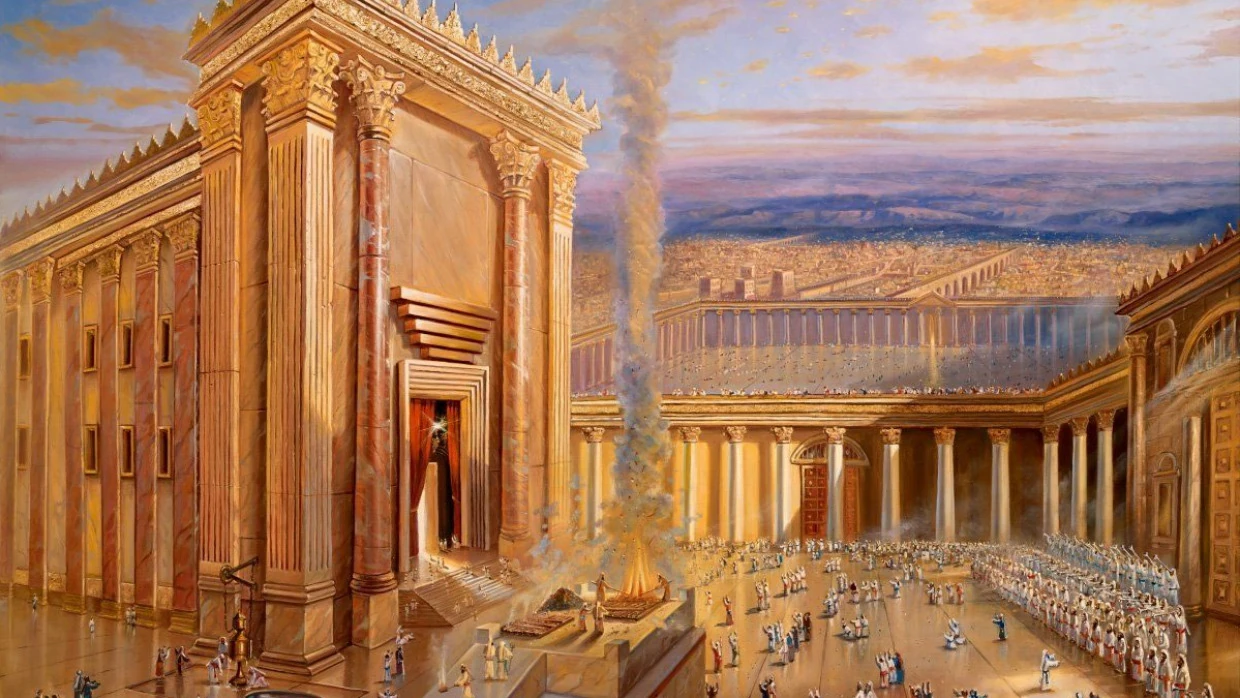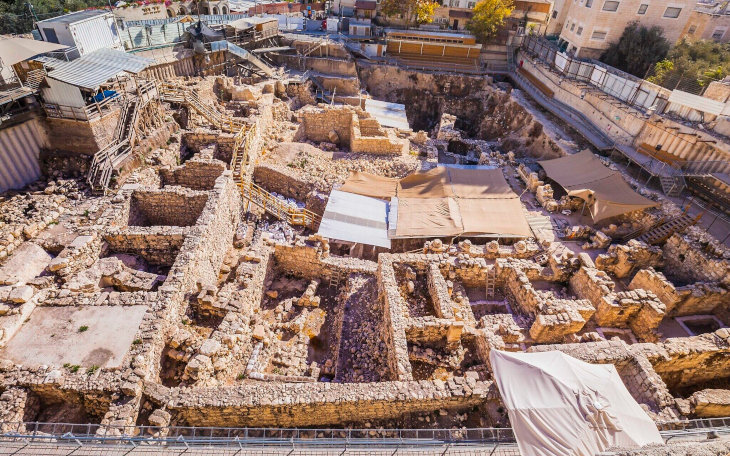 Raise a Glass to Freedom
Raise a Glass to Freedom


7 min read
There have been several Jewish states inside and outside the Land of Israel during ancient times, some lasting for centuries, others for only a few years.
The State of Israel that was established in 1948 was not the first Jewish state in history. Looking back into the past of ancient Israel, when we think of a Jewish government or kingdom, what typically comes to mind is King David or King Solomon, centrally located in a palace based in Jerusalem. The fact is, however, there was not just one Jewish state in ancient times, but several, some of them lasting for centuries, while others lasting only a few years. While most of these Jewish kingdoms were located in the Holy Land, some were located in other parts of the world.
Let’s take a brief tour of historical Jewish kingdoms inside and outside the Land of Israel.
According to both the Bible and archaeological sources, the ancient Israelites first entered the promised land as a nation under the leadership of Joshua some 3,300 years ago. Although his leadership was universally acknowledged and adhered to by all the Israelite tribes, his rule was not dynastic and was not inherited by any of his children, all of whom were daughters. For several centuries, there was no central leadership among the people of Israel. The first Jewish king who united the nation into a political entity was King Saul, but because his rule was short-lived and his death tragic, we turn to his son-in-law and successor, King David.
David was the first successful Jewish king who united all the tribes of Israel for a prolonged period of time, established a neutral national capital, Jerusalem, that was previously not controlled by any of the tribes, built his own palace, brought the Ark of the Covenant into the holy city, and established a royal dynasty that ruled all or part of the country for around 450 years. The full extent of the kingdom under both David and his son Solomon stretched from the Euphrates River in northern Syria down to the Red Sea in the region of Eilat. This is considered to be the first Jewish state in history that existed in what historians call the First Temple Period.
When David’s grandson, Rechavam, took up his post as king of Israel, a rebellion broke out as a result of high taxation. This led to 10 tribes splitting away from the Davidic dynasty and establishing their own monarchy that would retain the namesake, the “Kingdom of Israel” and whose capital would be based in Samaria (modern day northern West Bank). The two southern tribes (Judah and Benjamin) who remained loyal to the Davidic dynasty based in Jerusalem became known as the Kingdom of Judah. At times, these two Jewish kingdoms cooperated with each other against external threats, and at other times they made war against one another.
 Excavations of a unique ancient installation at the Givati Parking Lot dig in the City of David, Jerusalem
Excavations of a unique ancient installation at the Givati Parking Lot dig in the City of David, Jerusalem
By the 8th century BCE, the Kingdom of Israel was conquered by the Assyrian Empire and in the 6th century BCE, the Kingdom of Judah was conquered by the rising Babylonian Empire.
After centuries of foreign rule, in the 2nd century BCE, the Hasmonean family led a popular resistance movement known as the Maccabees that sought to liberate the Land of Israel from the Seleucid-Greek Empire. The Hanukkah story took place about five years into that war, but it took another 21 years for the Maccabees to fully liberate the Land of Israel from Greek hegemony. When they accomplished that goal, the Hasmonean family became dynastic rulers for about a century, creating the third Jewish independent state in history.
While successful and lengthy Jewish kingdoms existed during the First and Second Temple periods, during Roman-Byzantine period that followed, there were several failed attempts to restore Jewish self-governance. Although these attempts failed to produce a long-term state structure, they did manage to rule all or part of the Land of Israel for short periods of time.
One example is the rebellion of the Zealots against the Romans that started in 66 CE. Interestingly enough, one of the leaders of that rebellion who was responsible for declaring the establishment of an independent Jewish state was a man by the name of Yosef Ben-Gurion. The rebel government based in Jerusalem functioned as a state until Jerusalem was destroyed by the Romans in 70 CE just four years later. A similar rebellion took place some 62 years after that under the leadership of Shimon Bar Kochba. His rebel government controlled the territory of the southern Judean Hills and minted coins with imagery of the Temple as a propaganda tool to garner support from the local population.
His nascent state was toppled by the Romans in 135 CE after just three years of rule. Other short lived Jewish independent political entities controlled the Land of Israel in the 4th century with the support of Emperor Julian and later in the early 7th century under the auspices of the invading Persian Empire, each of them ruling for a period of three years before being dismantled.
By this point in time, Jews had become a minority in the Land of Israel, but prominent and largescale Jewish communities existed in Mesopotamia, Arabia, and Yemen. According to legend, the king of Yemen, Abu Kariba, was laying siege to an enemy city in Arabia in the late 4th century, during which time he became dangerously ill. Two Jewish doctors from the besieged city arrived to cure him. After healing, he learned about the Jewish faith and not only embraced it for himself, but compelled a large portion of his nation to embrace it as well. Archaeological evidence from the time period seems to indicate a disappearance of references to pagan deities from public buildings and royal inscriptions and replaced by the name of a singular deity, “the God of Israel, Lord of the Jews”. The Himyarite Jewish Kingdom of Yemen lasted until it was ultimately defeated by a coalition of Christian armies in 527 CE.
Another famous example of a Jewish kingdom outside the Land of Israel was the case of the Khazars. During the 8th century, the Khazar Khaganate found itself sandwiched between the Christian Byzantine Empire in the west and the rapidly expanding Arab Muslims in the south, both of whom eyed the Khazar pagan kingdom for potential conversion and political gain. According to legend, the Khazar king invited representatives of the three monotheistic religions to hear their cases. During these discussions, the Khazar king became most compelled by Judaism and historical sources seem to indicate that at least the ruling elite and nobility converted to Judaism at that time.
Coins from the period of Jewish Khazaria were found with inscriptions that read “There is no God but Allah and Moses is His messenger”! This Jewish state lasted until the end of the 10th century when it was finally conquered and destroyed by invading Medieval Russians from the north. It would be another thousand years before the next Jewish state would arise back where it started, in the land promised to Abraham, to Isaac, and to Jacob.
While most of Jewish history finds Jews as subjects and minorities in Pagan, Christian, and Muslim societies, it’s important to remember the times when our people did function as rulers in majority Jewish kingdoms both inside and outside the Land of Israel.

Being Jewish has so many questions and not enough answers about the history of Jews. Is it any wonder that Jewish people famously always argue about everything?
Not sure that the Kingdom of Israel should be considered a Jewish state, considering they were, by definition, not Judeans.
I remember have read, that there should have been a short-living kingdom in Southern France, with a Jewish king by the name of Machir This should have been in Narbonne - France abouth the 8th century.
Marcel Apsel
Antwerpen, Belgium
marcap@skynet.be
"There is no God but Allah and Moses is his Messenger".
Love it!!!!!!
Just imagine what would happen if the modern state of Israel adopted that slogan!
Ish-Bosheth son of King Saul was forty years old when he became king over Israel, and he reigned two years. The tribe of Judah, however, remained loyal to David.
Fascinating!